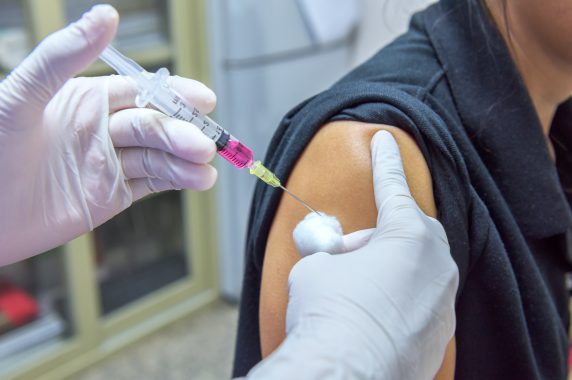NHS England’s flu target missed as uptake in over-65s drops on last year

The number of over-65s vaccinated against flu in time for winter is down significantly compared to the same time last year.
Public Health England data for 2 December, published today, shows that only 65.4% of over-65s were vaccinated – a drop of nearly 4 percentage points compared with the same time last year.
This follows problems faced by GP practices in sourcing sufficient stock of the new adjuvanted trivalent flu vaccine (aTIV) recommended for patients over 65 this flu season.
It also follows reassurances from NHS England that stock would arrive in time to allow ‘everyone who needs the vaccine’ to be ‘protected before December, when the flu season usually hits’.
A Pulse survey last month revealed that nearly 70% of GPs experienced an aTIV shortage, while around a quarter of GPs also suffered a shortage of the quadrivalent vaccine (QIV), recommended for patients in the 18-64 age group.
The fall in uptake comes despite NHS England promoting the over-65s flu campaign as the ‘NHS’s biggest ever’ with a ‘record’ 8.5m doses.
The PHE report also found lower update in other at-risk groups compared with the same time last year.
For all at-risk individuals under-65s, uptake was down by around 3 percentage points. This group includes pregnant women, for which uptake declined by 2 percentage points.
The only group with improved uptake was two- and three-year-olds, for whom it improved by one and 1.5 percentage points respectively.
In response to the data, PHE said patients should aim to have their flu jab by ‘mid-December’.
PHE head of flu Dr Richard Pebody said: ‘It’s reassuring that uptake among older adults continues to rise week on week and is approaching levels seen last year. We expect uptake to continue to increase as the last batches of the adjuvanted flu vaccine have now been delivered to GPs and pharmacies.
‘We encourage all older adults to get an appointment with their GP or pharmacist by mid-December before flu typically starts to circulate later in the month. However, it’s always worth getting vaccinated even if it’s later in winter – it’s the best defence we have against an unpredictable virus.’
BMA GP Committee clinical and prescribing policy lead Dr Andrew Green said: ‘It is ironic that the figures have dropped when GPs have put more effort into this year’s flu campaign than ever before. I suspect that publicity concerning the relative poor protection offered in previous years may have contributed to the difficulties caused by the staged vaccine delivery.
‘This is an important warning sign for NHS England, who must not dilly-dally with their guidance for next year as they did for this one.’
Pulse has approached NHS England for comment.
The flu vaccine supply issues
Due to global supply issues, manufacturer Seqirus was only able to deliver the aTIV vaccine in a phased process, with 40% delivered in September, 20% in October and 40% in November, with GPs warning ahead of the vaccination season that they would run out between batches.
This resulted in practices having to delay vaccinating patients or refer them to pharmacists due to problems with securing flu vaccine stock.
Issues with flu stock did not only affect aTIV orders, as the UK’s main supplier of QIV – Sanofi Pasteur – were hit by manufacturing issues, which saw deliveries to around 1,000 GP practices delayed by two weeks.
The BMA has called this year’s flu vaccine situation a ‘nightmare for GPs’, and asked NHS England to ensure the issues do not reoccur during the next flu season.
But NHS England has blamed GPs, claiming that practices had ‘more than enough time’ to place their orders.
Pulse October survey
Take our July 2025 survey to potentially win £1.000 worth of tokens

Visit Pulse Reference for details on 140 symptoms, including easily searchable symptoms and categories, offering you a free platform to check symptoms and receive potential diagnoses during consultations.










